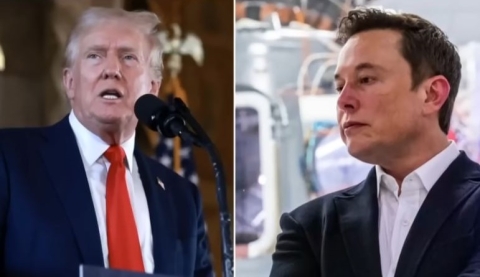


Democrat consumers’ opinion of electric vehicle (EV) leader Tesla is decidedly politically-driven and overwhelmingly negative – but, that hasn’t stopped the Elon Musk-led company from outselling the next 10 EV makers combined.
Democrats’ disdain for Musk has steadily grown. First, he ended Twitter’s censorship of conservatives. Then, he supported Pres. Trump’s presidential candidacy. And now, he continues to lead the Trump Administration’s Department of Government Efficiency (DOGE).
Today, more than three times as many Democrats view Tesla negatively as have a positive opinion, according to survey results from the latest Electric Vehicle Intelligence Report (EVIR).
Meanwhile, a majority of Republican consumers now say they have a favorable view of Tesla, three times the number that say they have a negative impression.
“Political contagion is clear with a small but notable share of consumers using terms like ‘MAGA’ or ‘Republican’ to refer to Tesla owners – a sign that Tesla’s image is now entangled with U.S. cultural-political conflict and perceptions of Elon Musk,” the report explains.
Unfortunately for Tesla, Republicans don’t buy electric vehicles. Only one percent of Republicans own an EV, compared to six percent of Democrats and four percent of Independents, a 2013 Gallup survey found. Likewise, just one percent of Republicans said they were considering buying an EV in the future.
Of the EV makers studied, Tesla is only brand “where consumer perceptions differ significantly based on partisan affiliation,” the EVIR report notes.
Consumer Views:
Likewise, Democrat consumers say they distrust, rather than trust, Tesla by more than a three-to-one margin.
Trust:
Coincidentally, as politically-driven vandalism of Tesla vehicles rages on, consumers now rank Tesla second to last on safety.
Nonetheless, even though its sales fell 8.6% in the first quarter of 2025, Tesla still sold 128,100 EVs – more than its next ten competitors combined and over five times number two Ford’s 22,550 unit sales.
EVIR surveyed more than 8,000 U.S. consumers, weighted by education, race, gender, age, income, and geography, “to uncover the truths behind what’s powering or stalling the EV transition.”
